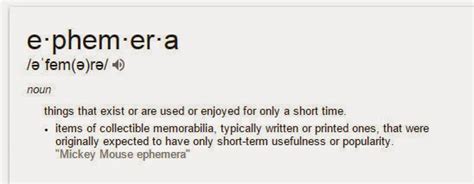The study of history is not an exact science. We know about the big things like the depravities of Kings such as Henry VIII, the revolutions such as that of the USA and the machinations of politicians because people had the foresight to write about them and record their views of them for posterity. However, there are the little things and stories of the ordinary people and the events and cultural changes that seemed big at the time but which have been lost to history as they were not recorded and saved, are often the things that would tell a historian more about a culture than the official records.
Too much of the written and recorded ephemera of the past has been lost and we are left with a patchy record composed of what little has survived and come down to us to tell us what life was like for ordinary people in the past and about things like culture and the economy. We have some information in the form of land and job records, printed ‘broadsides’ detailing the final words of those executed at places like Newgate and Tyburn and the records of the trials and tribulations of the churches over the centuries, but it is data that is patchy, inconsistent and in the case of the ‘broadsides’ notoriously inaccurate.
The reason for so much ephemera not coming down to us is legion. Political pamphlets may have been published in small numbers, early photographs became separated from the families to which they belonged and were then destroyed. Disasters, both man made and natural have also taken their toll on the historical record with much early motion picture footage taken on flammable cellulose nitrate film that either burned in studio accidents or crumbled to dust due to poor storage. Modern ephemera from the era of electronic media has also suffered from being seen as unimportant and because in the early days of video recording the recording media itself was exceedingly expensive. Those few organisations with video recording equipment, mostly broadcasters, often taped over stuff that historians today would give their right arms to possess because the blank tape was worth more than the programme contained on it.
But there are some individuals, mostly from the late 1970’s and early 1980’s who had the presence of mind and the resources in the form of video tape and a video recorder, to record that ephemera that may otherwise have been lost. We owe a debt of gratitude to those with both the equipment and the foresight to record stuff that could quite easily be lost and not recycling the tapes. It is to these people that we must direct thanks for recordings of TV and radio shows that are no longer with us and stuff like station idents, test cards and in one fascinating case, Trade Test Transmissions. These Trade Test Transmissions were put out by both the BBC and ITV and were primarily intended to be viewed by those working in the radio and television trade back in the day when there were a multitude of TV and radio shops who not only sold equipment but also had to repair some of the often unreliable early TV sets.
These Trade Test Transmissions are often a fascinating glimpse into the technological world of the 1970’ and early 1980’s and also how it was operated. One of the videos below tells us of a time when TV transmitters were not automatically controlled and how an engineer had to travel to the transmitter each morning to switch it on. These videos also contain station hand offs and hand overs and another contains performers who are either long dead in the case of David Rappaport or who were later on rightfully incarcerated as is the case with Gary Glitter.
The test transmissions, handovers to TV stations that no longer exist and the fill in programming that was put out by broadcasters because of the multitude of strikes in the 1970’s are a window into the technology and culture of the past. We now live in a world where information is everywhere but as in the past, there seem to be few who are preserving it for the historical record. Maybe there is someone out there archiving dead websites, failed search engines, almost forgotten social media platforms and much more. I pray that there is or future historians will be in just as bad a place as those of today trying to piece together a culture from the little ephemera that was preserved by those who are now themselves dust.
Here is some of the broadcast ephemera, mostly trade transmissions that I’ve found. There must be much more out there and which should be preserved.
Temporary radio programming on the BBC stations due to a strike in 1978, a period that was known in Britain as ‘The Winter of Discontent’ due to the sheer amount of strikes and other industrial action.
Welsh independent broadcaster Harlech Televisions opening ident and sequence.
Closedown of the last Independent Broadcasting Authority 405 line transmitters operating on VHF
The close out ‘song’ sequence from now dead breakfast TV station TV AM with a handover to now equally dead ITV broadcaster Central Television. This is the video which shows the much missed David Rappaport and the fallen star Gary Glitter.
From 1983. The last Trade Test Transmission on the main ITV channel before the transmissions moved to what was the then new Channel Four.
BBC trade test transmission preparing TV engineers for the introduction of colour television in the late 1960’s.






The depravities of King Henry VIII are remembered because he freed Britain from the dead hand of the Church of Rome
Kings who are not remembered and celebrated enough are Edward I (1272-1307) who started the erradication of wolves, completed under Henry VII (1485–1509). This is why British sheep dogs are completly different to European ones, we don’t have shepherds and Britain was world capital of wool
Interesting docu on BBC2 yesterday 19:00 – The Snow Wolf (also show’s sheep dogs living with the sheep)
https://www.bbc.co.uk/programmes/b0bwqdbg
Fill in programming: I remember The Potter’s Wheel and the optical illusion ball bouncing up steps forever (Sisyphus)
Old recovered recordings: loads of interesting on YT; one official archive channel is Thames TV
“For radio, the contingency measure to keep some sort of service on-air was to provide a single networked programme carried on all BBC frequencies”
Fast forward to 2020 and BBC provided a single networked programme carried on all BBC frequencies from 00:00 4 November
Do you remember the dots or circle that appeared at top right as ‘handover’ alert for commercials etc?
Agree wholeheartedly that Henry VIII freed Britain from Rome which was a good thing, not just for those unhappy with the RC church at the time but an action that had unforeseen, by Henry, positive influence on much else later on, including, eventually the birth of the Enlightenment. But he was a seriously nasty tyrant who held the country in an iron grip and killed anyone who even remotely challenged or criticised him. Agree that there are some monarchs who are less remembered than they should be.
I’m not quite old enough to remember the Potters Wheel going out live as a filler but I’ve seen it on re-runs. Yes there is a lot of stuff from the past on YT but as some of this stuff might end up offending the woke I’d advise those running those channels to back up their stuff on other platforms.
The BBC’s current use of one networked programme overnight is more to do with cost cutting than anything else. The BBC has decimated local radio’s ability to properly serve local areas due to cutbacks but such cutbacks do not seem to apply to the funding of useless and dangerous race baiters like June Sarpong.
I remember the handover dots. I most remember this from the ITV news. I’ve seen the spinning bars being used by some YT channels as well possibly to signify a transition either to an advert or something else. I’ve seen this on the Plainly Difficult channel that covers historical industrial and nuclear disasters and it may be a transition marker or it may be an in joke for the media nerds.
Henry VIII – weren’t all kings/queens until 1688/90 seriously nasty tyrants who held the country in an iron grip and killed anyone who even remotely challenged or criticised them? eg Thomas Becket
Potters Wheel: surprised you didn’t see, I thought you were older than me (57)
Nov 4: it was not only local – R1, 2, 3, 4, World Service all same
The ‘be prepared’ commercial break in ~10s ‘dog’ was good if you needed loo or do anything